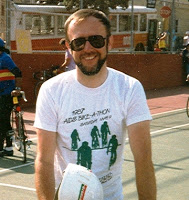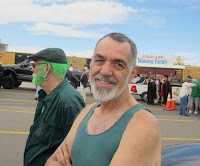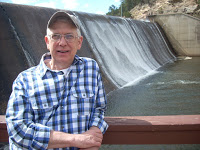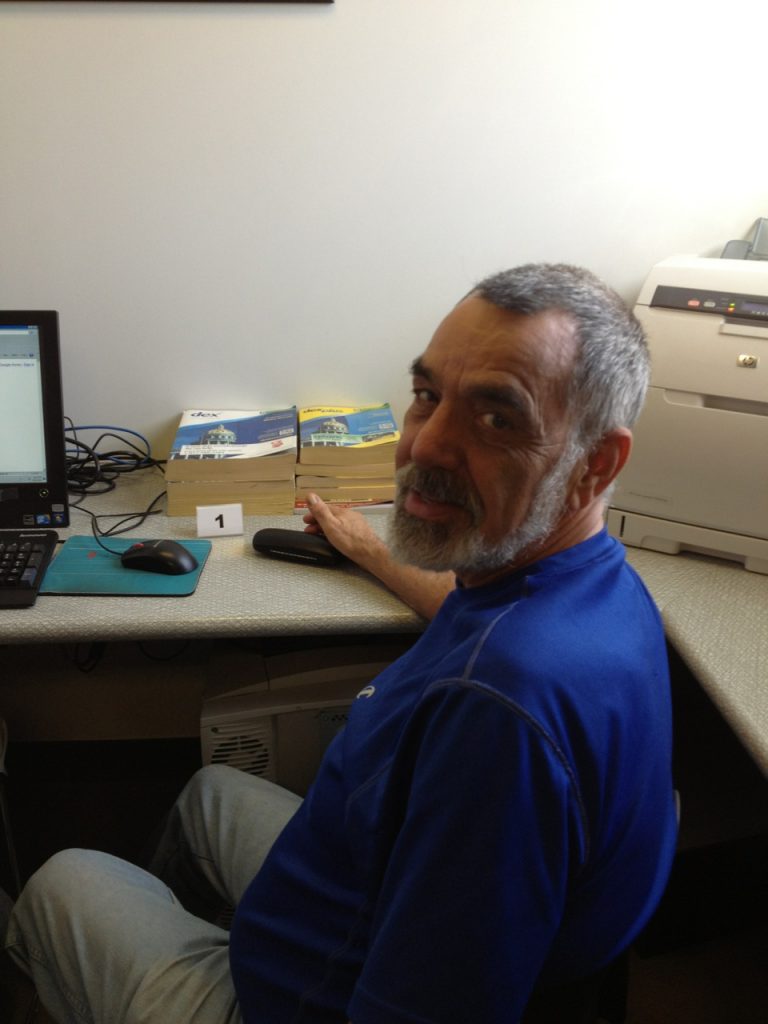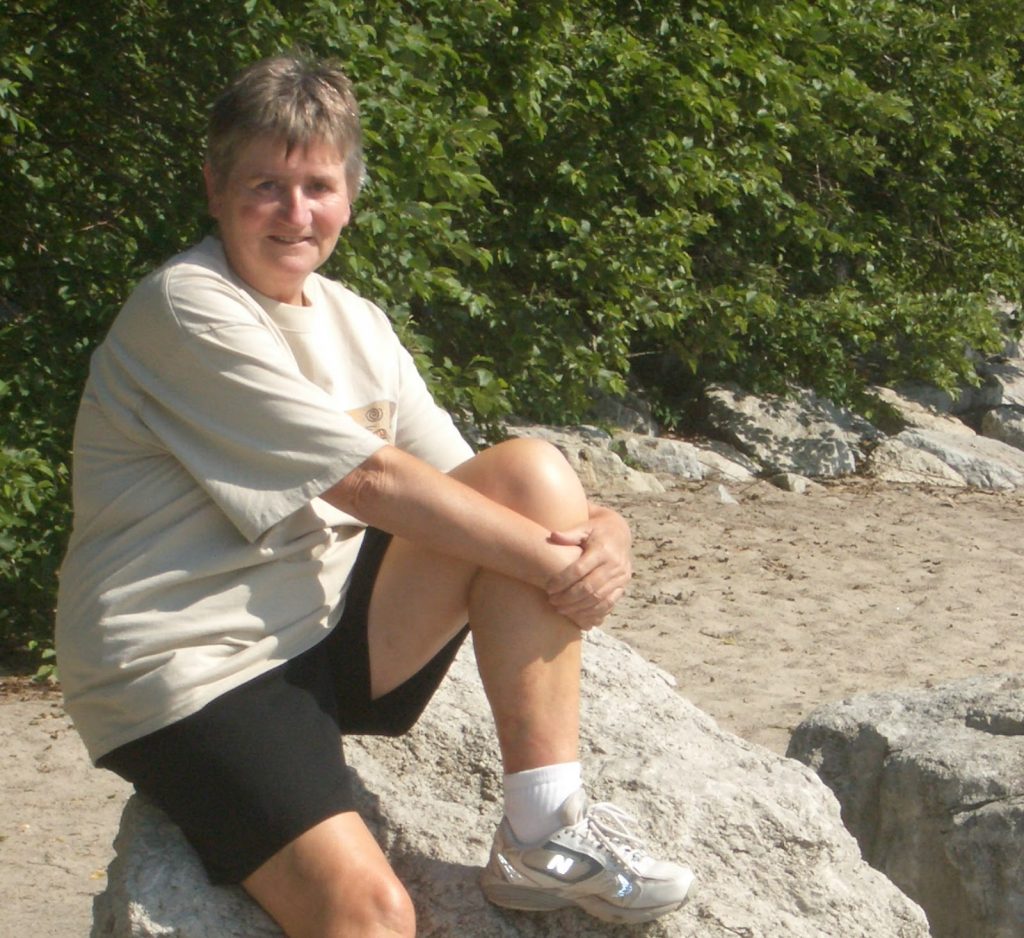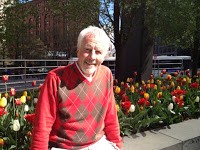Captured, caught, entrapped, ensnared…all of these words have negative connotations, and of course, depending on the circumstances, the revelation of oneself to the world can have devastating effects, whether tangible or perceived. I still grimace when a few classmates in high school branded me a maricon, a joto, a mariposa since I could not catch a football or hit a ball with any finesse. After having my identity questioned, I discerned that I had choices to make. Later in life, I was again a casualty when I gave my heart prematurely to men who had no interest or inclination in nurturing it once the adrenaline rush dissipated. Again, I had choices to make. More recently, I found myself under the sword of Damocles when a professional informed me of possibilities of prostate cancer. Being terrified, I forfeited my power. And again I had choices to make. Looking back retrospectively, I’ve recognized that a challenge can, in fact, be an opportunity. Nevertheless, I’ve also concluded that no pain can ever compensate for the outcome.
In my childhood, I valued the identity instilled upon me by my nuclear family. My family never questioned why I preferred to play with my sister’s Easy Bake oven rather than with a baseball glove. My family encouraged me to love poetry rather than to critique it as being too sensitive, too different, too enticing for a little boy. I embraced books over athletics, gentleness over boldness. My parents never counseled me against watching in awe as Loretta Young, bedecked in resplendent gowns of silk and chiffon, sashayed across the screen on our Zenith television. I came to admire her demeanor, her identity, secretly of course, for I suspect that by that time I had learned the rules of playing hide and seek.
Little did I realize that once I stepped outside of my family’s threshold and into the world, my halcyon days would come to an end. The day would dawn when I would be caught red-handed, judged, and summarily sentenced for crimes against nature. When I entered the arena, that stage became gladiatorial combat, victory going to he who could assert his alpha male supremacy over others. Maybe that is why so many cultures have a strong belief in warding off the evil eye with amulets and totems, an attempt to maintain one’s sanctity and humanity in a world that so often hovers between heaven and hell. My entry into the world was fraught with insecurity and pain. Others recognized that I was queer even before I knew it. In order to satiate their own insecurities, bullies needed scapegoats to justify their own failures. Thus, they flung poisonous arrows in my direction. I was pommeled into a terrifying world of youthful competition, of constantly measuring myself against the others around me. I learned to live life in quiet desperation like so many other little boys and girls who drown in anonymity.
Later, when I decided to embrace my, dare I say, God-bestowed identity, and quest after being enfolded in manly arms, it didn’t take long for me to realize that my quest for love would not come easily. I offered too much too early to the advances of a handsome face or mellifluous words spoken in a moment of desire. I had naively expected to find redemption from a fellow inmate; instead I internalized self-induced doubt and condemnation. And the fissure grew into a fracture as I catapulted deeper into the abyss.
More recently, a urologist informed me, in her all-too-professional demeanor, that my unexpected inability to hold my bladder might, in fact, signal a developing cancer. I accepted her prognosis as thoughts of loss of control, youth, and mortality shrouded me like a cosmic black hole capturing light. After all, I was the organism being scrutinized through her lens. Thus, like many of us, I was caught time and time again and condemned to journey into the headwaters of self-loathing and misappraisal.
Many people, especially New Age types, have adopted a pseudo-belief borne from a Taoist perspective that opportunity and danger go hand-in-hand. It’s so convenient to conclude that a crisis can result in an opportunity. I recognize that this feel-good attitude toward struggle may help assuage some of the trauma of dealing with any pain. I recognize that through alchemy, fire does, in fact, transform brittle iron into solid steel. However, I am a living, breathing human being imbued with memories as well as a heart and soul that can be shattered like a fragile Swarovski crystal. More often than not, in extricating the barbs that penetrated my flesh, pieces of me were gouged out. To my credit, in spite of the taunts of my peers in my youth, I overcame. I even learned that it’s perfectly okay for macho men to play with dolls and to treasure poetry. In spite of the men who cast stones at my glass house, I never became jaded in my pursuit for love, and in time unearthed the Lesotho Diamond, the man-of-men whose heart beats in unity with mine. And in spite of an initial terrifying medical prognosis, I learned that sometimes cancer is nothing more than kidney stones. In spite of my having been ensnared, I eventually learned to embrace the man in me, a skeptic but a believer, fractured but whole.
It hurts as the flames devour essence. Picking up the pieces from the ashes is metaphorically like collecting shards of sulfur from fire-belching volcanoes. Of course, I recognize that life by nature can be a journey fraught with suffering. Of course, I realize that tragedy is only tragedy when one gives in to it. Nevertheless, realistically and unapologetically, I still long for a world in which its citizens recognize holistically that we are truly the stewards of each other’s souls. A poet writes, “Some people come into our lives and quickly go. Some stay for a while and leave footprints in our hearts and we are never the same.” The poem implies that our getting caught can be blissful, a journey to Nirvana. Unfortunately, it also suggests that sometimes getting caught leaves lesions that burn acrimoniously. However, it behooves me to recognize that in this world, it is to my advantage to recognize that there are some things we cannot change, but with courage there are many we can as long as we know the difference (Serenity Prayer).
About the Author
Cervantes wrote, “I know who I am and who I may choose to be.” In spite of my constant quest to live up to this proposition, I often falter. I am a man who has been defined as sensitive, intuitive, and altruistic, but I have also been defined as being too shy, too retrospective, too pragmatic. Something I know to be true. I am a survivor, a contradictory balance of a realist and a dreamer, and on occasions, quite charming. Nevertheless, I often ask Spirit to keep His arms around my shoulder and His hand over my mouth. My heroes range from Henry David Thoreau to Sheldon Cooper, and I always have time to watch Big Bang Theory or Under the Tuscan Sun. I am a pragmatic romantic and a consummate lover of ideas and words, nature and time. My beloved husband and our three rambunctious cocker spaniels are the souls that populate my heart. I could spend the rest of my life restoring our Victorian home, planting tomatoes, and lying under coconut palms on tropical sands. I believe in Spirit, and have zero tolerance for irresponsibility, victim’s mentalities, political and religious orthodoxy, and intentional cruelty. I am always on the look-out for friends, people who find that life just doesn’t get any better than breaking bread together and finding humor in the world around us.


